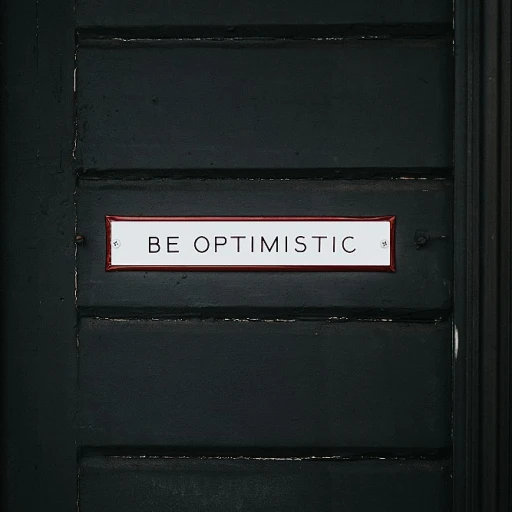
Understanding Candidate Experience
Importance of Candidate Experience in Job Success
The significance of candidate experience in today's job market cannot be overstated. Employers and hiring managers are continuously looking for ways to improve this experience as they recognize its impact on attracting and retaining top talent. A positive candidate experience can reflect a company's work culture and professional environment, facilitating a match between the personality traits of candidates and the values of the company. It can significantly influence the perception of a company's brand among potential employees, which is crucial in a competitive job market. Candidate experience is essential for both job candidates and employers. For candidates, a seamless and respectful process can enhance their engagement, demonstrating the company's commitment to nurturing its people. For employers, it creates a strong employer brand that is hard to compromise. A good candidate experience can be a defining element of success in retaining and motivating employees. Job candidates often evaluate potential employers based on their recruitment experience. Factors such as clear communication, feedback, and transparency in the hiring process are vital. These elements not only reflect a company’s professionalism but also indicate the potential working environment. As roles become more complex and diverse, adaptability has emerged as a significant requirement. Employers appreciate candidates who can thrive in dynamic settings. This agility is not just about adapting to new technologies but also involves understanding and responding to variations in team dynamics and work situations. Understanding the importance of strong communication skills is also crucial. Job candidates who exhibit these skills demonstrate their ability to articulate ideas effectively, collaborate with diverse teams, and engage with clients proficiently. In conclusion, the candidate experience is a crucial component of job success. Companies that prioritize refining this experience can expect to see improvements in the quality of their hires, the organizational culture, and overall company performance, making it a vital aspect for both employees and employers. Explore job opportunities at the University of Tulsa for more insights on the impact of candidate experience on job success.Communication Skills: The Cornerstone of Success
The Vitality of Effective Communication in the Workplace
In the realm of career success, communication stands as a foundational skill that employers consistently prioritize. The way candidates express their thoughts during a job interview can significantly influence their chances of being hired. Employers seek individuals whose communication skills convey not just information, but also connection and understanding.
Strong communication abilities are not just about verbal exchanges. They encompass the written word as well, where clarity and precision are vital. For job candidates, this means their application materials—résumés and cover letters—must be well-crafted and articulate.
- Active listening: It goes beyond hearing what is said to understanding and responding appropriately, fostering better teamwork and collaboration.
- Non-verbal cues: Understanding body language can enhance interpersonal interactions in a professional setting. Job seekers should be mindful of their own gestures and facial expressions during interviews.
- Feedback exchange: Being able to give and receive constructive feedback is a crucial element for personal and professional growth. This character trait is often seen as an indicator of a candidate's maturity and willingness to learn.
- Adaptation to digital tools: Given the rise of remote work, proficiency in communication technologies has become essential. Being comfortable with virtual meetings and collaboration platforms is a hard skill that sets candidates apart.
The combination of these skills paints a comprehensive picture of a candidate who is not only capable of performing their role but also works seamlessly within a team. Communication is a multifaceted trait that, when mastered, significantly enhances a candidate’s appeal in the job market.
Exploring employment opportunities can provide a context to understand why communication is a pivotal skill for any successful job applicant. Across industries, the ability to communicate effectively remains a cornerstone of professional character and achievement.
Adaptability: Thriving in a Changing Environment
Thriving in an Ever-Evolving Workplace Landscape
In the dynamic job market, adaptability stands as a pivotal skill for any job candidate aiming for long-term success. Employers are increasingly valuing candidates who can demonstrate a willingness to learn and pivot in ever-changing work environments. Adaptability is not simply a character trait; it is a professional cornerstone that reflects a blend of soft skills and a proactive attitude.
The capacity to readily adjust to new situations is not just about rapid changes in technology but also about being able to work with diverse teams and navigate evolving organizational cultures. With the rise of machine learning and other advancements, the roles and responsibilities within companies can transform overnight. This requires candidates to possess strong problem-solving skills and an open mind to embrace new challenges constructively.
Moreover, a key part of being adaptable is reflecting on past experiences and learning from both successes and setbacks. Candidates exhibiting adaptability are often those who uphold a strong work ethic while maintaining a good employee attitude. They are the ones who will more than likely become valuable contributors to a company's success by fostering an inclusive and innovative work atmosphere.
Hiring managers actively seek out job candidates who possess this blend of technical skills and the ability to adapt, as these qualities generally ensure a smoother transition during times of change. Companies benefit from employees who can view challenges as opportunities, thereby turning potential issues into growth avenues.
For candidates, showcasing adaptability during the hiring process can significantly enhance their candidate experience. For insights on crafting equitable hiring letters that align with improving the candidate experience, see relevant resources.
Problem-Solving: Turning Challenges into Opportunities
Overcoming Obstacles with Creative Thinking
The ability to approach challenges with a problem-solving mindset is a critical skill for job seekers. Employers often look for candidates who not only have the necessary technical skills but also the capacity to tackle unforeseen issues in innovative ways. Strong problem-solving skills can set a prospective employee apart in a competitive job market, showcasing a willingness to learn and the capability to handle diverse scenarios. In the context of job success, problem-solving extends beyond merely identifying solutions. It involves analyzing the root cause of a problem and using professional judgment to arrive at the best possible resolution. This trait is valuable to employers as it demonstrates a candidate's character traits such as work ethic and adaptability, which are pivotal to thriving in a changing environment. Problem solving also requires excellent communication skills. Being able to convey your ideas and solutions clearly to the team and hiring managers ensures that everyone is on the same page. This collaborative approach can transform challenges into growth opportunities for both you and your company. Employers hire candidates who can think critically and anticipate the needs of the role they are applying for. Incorporating both soft skills and technical skills enhances your employability, making you a good fit for the team. Strong problem-solving abilities and a big personality that embraces challenges can heavily influence your career trajectory. Ultimately, enhancing problem-solving skills involves a willingness to continually improve. Whether through formal training, mentoring, or on-the-job experiences, cultivating these skills can significantly increase the quality of a candidate's experience and offer greater chances for professional achievements.Teamwork: Collaborating for Greater Achievements
The Power of Collaboration in the Workplace
In today's job market, where employers hire individuals not just for their technical skills but for their strong work ethic and willingness to learn, the ability to work effectively as part of a team is paramount. Teamwork is not just a professional requirement but a character trait that reflects one's social personality and work ethic. A candidate's success in any company hinges on their ability to communicate, collaborate, and contribute to team goals. In many jobs, the role you play and the impact you have is amplified when you can work harmoniously with others. This involves not just getting along with team members, but actively engaging in discussions, offering solutions, and being willing to support your peers. For hiring managers, the qualities good team players exhibit are highly desirable. These candidates demonstrate a balance between their own professional needs and the collective needs of the team. Employers look for traits like open communication, reliability, respect for diversity, and the willingness to share knowledge with others. Here are some points that illustrate why teamwork is a vital trait sought by employers:- Enhances Problem-Solving: When candidates collaborate, they bring diverse perspectives that lead to innovative solutions.
- Boosts Morale: A good team environment improves employee engagement and reduces turnover.
- Increases Productivity: Working together helps distribute tasks according to strengths, maximizing efficiency and output.
- Promotes Growth: Being part of a team allows for learning from others' experiences, contributing to professional development and skill enhancement.
Emotional Intelligence: Understanding and Managing Emotions
Mastering Emotional Intelligence in the Workplace
In the competitive job market, having technical skills is essential, but displaying strong emotional intelligence can make a significant difference in a candidate's career progression. This unique trait encompasses understanding and managing one's emotions, as well as those of others in a team environment. It's a personality trait that employers value highly, as it impacts work ethic and the overall work atmosphere.
Employees who exhibit emotional intelligence are capable of creating a constructive and harmonious work environment. Good emotional comprehension aids in handling stress, resolving conflicts, and fostering a collaborative setting that enhances team performance. These individuals often excel in problem-solving and are adept at turning challenges into opportunities, a quality that is valuable in any role.
Moreover, candidates with high emotional intelligence display empathy, a key component of effective communication skills. Understanding the emotional contexts of colleagues and customers can lead to more meaningful interactions and a stronger professional presence. They are adept at gauging the emotional state of their professional connections, allowing for nuanced and effective communication tailored to individual needs.
This skill set is not solely innate; it can be developed and honed over time. Prospective job candidates seeking to improve in this area might engage in networking, obtaining feedback, or pursuing coaching. As the workplace continues to evolve, a candidate's willingness to learn and adapt will help them stay relevant and successful.
Emotional intelligence is often a deciding factor in hiring decisions. Employers hire individuals whose character traits compliment their company culture and whose soft skills align with their goals. Therefore, strengthening this aspect of one's professional repertoire can greatly enhance candidate experience and career prospects.













